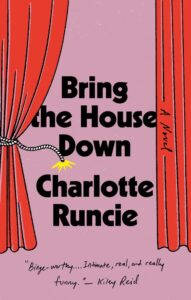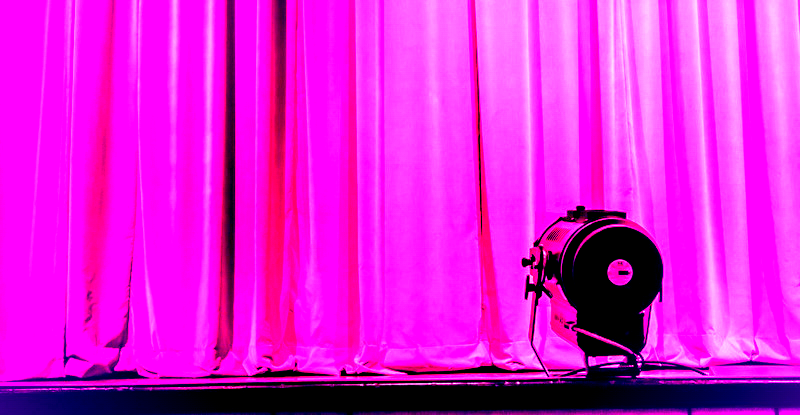I was one of eight people in the audience for a low-budget theatre show about Russian spies, staged in a small cafe in Edinburgh, Scotland. And, with a notebook open on my lap, pen poised above, it was painfully obvious that I was a critic.
Article continues after advertisement
The two actors, inches away from me, knew it. I could tell because they delivered every line looking me dead in the eye. It was as if no other audience member existed. To make it worse, because the magazine I worked for had requested a free press ticket for me in advance, they knew my name, too. To them, my opinion would mean the difference between a positive quote they could put on their posters and something that would depress them for days. It was, all in all, a bizarre and unnatural human interaction.
The tension between artist and critic, then, is a wire held taut by shame, guilt, rage, insecurity, and a shared craving for hard work and creativity to be acknowledged.
Years later I started writing my debut novel, Bring the House Down, about journalists in trouble at the Edinburgh Fringe. And it was my years of experience as a culture writer, and the unique tension of the relationship between artist and critic—a transactional relationship between total strangers, constantly poised on the brink of venom in either direction—that returned to me as I wrote, shaping the characters as they emerged on the page. After working as a critic for various publications in the UK for over a decade, I was haunted by the desperate look in the eyes of the hundreds of performers I’d been sent to review, a look that fell somewhere between pleading and confrontational. I held an unsettling suspicion: that people who make art are usually desperate for the approval of critics, yet sometimes they don’t—or can’t—think of critics as fully human.
Critics are often seen as snobs, people who pass judgement because they don’t possess the talent to create anything for themselves. They’re seen as parasites and know-nothings. Haters, basically. They’re perceived as cultural gatekeepers who have the power to make or break a show, and yet they have no idea how much effort, determination and energy goes into actually making a show.
Maybe that’s true of some critics, but honestly not any I’ve met. Personally, I didn’t become a critic because I like passing judgement on people. I became a critic because I love theatre, books, music and art, and I wanted to see as much of all of that as possible, even though, in my early twenties, I didn’t have much money to pay for any of it. So, I hatched a plan: what if I could experience as much culture as I wanted, learn as much as I could about it, and pay for it with words?
Interning for magazines meant that I could get free tickets to interesting shows, and in return all I’d have to do was write what I thought about them. It felt like being more than a spectator; more as if I were actually taking part in something. And when I gave something a great review, I felt the joy, pride and even relief of the performers as they posted about it online. Enticingly, some of that warmth even reflected back onto me. The power of being able to kindle such positive feelings in other people, people whose talent I revered, was a kind of high.
But no critic can give everything a five star review. Sooner or later, they have to stick the knife in. And this is where things get complicated, because nobody likes receiving a bad review. The tension between artist and critic, then, is a wire held taut by shame, guilt, rage, insecurity, and a shared craving for hard work and creativity to be acknowledged.
All of this is extremely, pathetically, endearingly human. And when I started writing fiction, all these complex and even corrosive emotions poured out on to the page through the characters.
By fictionalizing and humanizing the complexities of life as a critic, I worried seriously that I was goading real-life critics into hating the novel, daring them to write a hatchet job of it, just to prove a point that they were all actually totally cool about it. One critic has told me in person that he’d been almost too afraid to read the book at all. Another told me he was concerned that one of the (entirely fictional) journalist characters was actually based on him. Impossible, especially as I’d never met this person before in my life. But critics, it turns out, can be flighty animals, highly sensitive, their emotions held close to the surface.
Well, of course they can. Otherwise their responses to art would be worthless. Critics, no matter how jaded, know they need to retain the ability to be touched by something if they’re able to connect with art at all. One colleague I deeply respect, a senior film reviewer, said that he was considering giving a new Disney movie a lukewarm three-star review until he saw the tears in his young son’s eyes at the film’s emotional peak, and found himself moved in turn. How, he said, could he give the movie anything less than five stars, when it had given him and his little boy this precious moment together? His review was richer and more meaningful for being based on a genuine emotional response.
At their best, critics are in touch with their own personal strengths and failings, and work as interpreters and contextualizers for the rest of us. It’s their skill to figure out why something moves us, or why it fails to, and where it sits within the bigger picture of culture right now. How does a piece of work speak to the past, and how does it look forwards? And if a work is truly abysmal, can we talk about how and why that is?
To write a novel about critics was to write about people who care very deeply about things, and who expose themselves by doing so in public.
Literary critics, it’s worth pointing out, are different from newspaper reviewers of other kinds of art, because they so often write books too. They therefore have a different level of investment in the culture they’re critiquing. This, inevitably, gives rise to its own opportunities for bitchiness based on competition and grudges, but there’s also more space for literary critics to understand and respond to their colleagues’ work in a way that extends its creative life beyond the book covers and turns it into a broader conversation. Criticism becomes an act of creative extension rather than straightforward judgement or recommendation.
But there was a reason I wrote a novel about critics and not a book of essays on the function of criticism: I’m much more interested in people than in journalism. To write a novel about critics was to write about people who care very deeply about things, and who expose themselves by doing so in public.
The characters are people who fall in and out of love, who are grieving, and who are struggling with the landmarks and chaos of life: new parenthood, career implosions, difficult relationships with their own parents, the ghosts of terrible decisions they’ve made in past and current romantic relationships.
Bring the House Down isn’t a meditation on review culture, but a story of flawed human beings wanting to do something worthwhile, making mistakes, desiring and hurting each other, and trying to be good.
Because nobody can be a critic of their own life. You just have to live it.
__________________________________

Bring the House Down by Charlotte Runcie is available from Doubleday, an imprint of Knopf Doubleday Publishing Group, a division of Penguin Random House, LLC.
